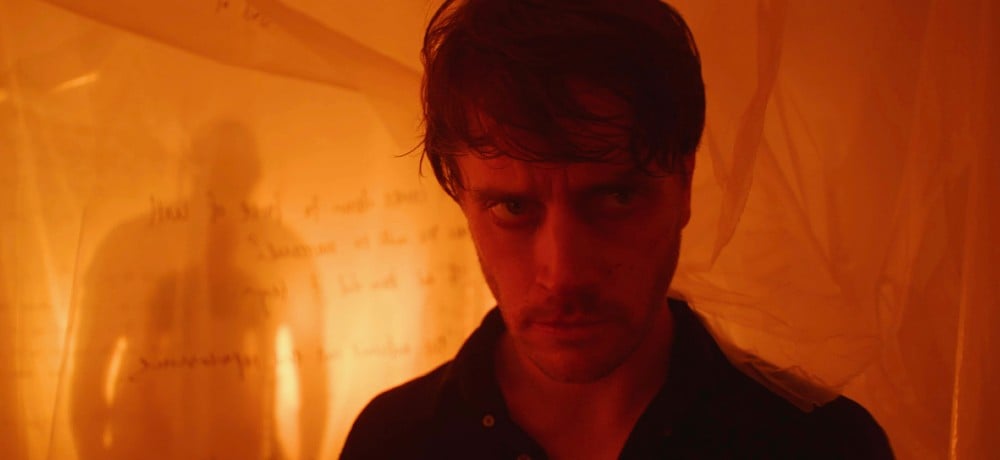






Director Matt Harlock’s first narrative feature is quite a departure from his previous work. Harlock co-directed American: The Bill Hicks Story, a documentary about the anti-establishment stand-up comedian Bill Hicks, who died at the age of 32. However, despite the change in format, style, and tone, Blockhead and The Bill Hicks Story are both films about the challenging—and at times controversial—creative endeavours that young artists face.
Author Will Mercer is struggling in every way imaginable. He cannot find his creative voice, his relationship with his partner is faltering, and—more importantly—he’s trying to recapture the lightning-in-a-bottle success that made his debut novel a smash hit. However, six years have passed since then, and the all-night writing sessions and self-made guidance tapes no longer seem to be helping.
Will’s editor tells him that “to write you must be willing to risk something of yourself.” In a bid to break his creative block, Will hides away in his editor’s spare flat in order to give something of himself to his work. However, before he has the chance to, he meets an unconventional muse: Mikey, a larger-than-life decorator who takes no prisoners and lives life to the fullest. Mikey acts as Jekyll to Will’s Hyde, forcing him to become more assertive and determined in claiming what he believes is rightfully his.
Will’s writing improves, and he is able to recapture what he has been missing over the past few years. His previously indifferent agent is pleased with the new material, and Mikey’s influence seems to signal a turn in fortune. But in the process, Will begins to lose control—and his grip on reality. As his work takes a darker turn and his behaviour grows increasingly erratic, concern from both his editor and partner begins to mount. Will starts to give too much of himself to his novel—and what he’s giving up is something he’s been trying to bury for the past six years.
Matt Harlock has created a gritty, clever, and cerebral psychological tale that explores the price some people are willing to pay to create a masterpiece. Although the premise of Blockhead might initially appear predictable, the story takes an interesting turn as we journey through the surreal world that Will has unintentionally manufactured for himself. What plays out is ultimately one man’s bleeding heart and purged soul in service of his art.
Blockhead constantly conveys a sense of things on the verge of collapse. Much like one of Will’s failed attempts at a blockbuster second novel, everything threatens to come apart at the seams—the opportunity presented by his agent, his disintegrating relationship with his girlfriend, and even the flat where he meets Mikey. Mikey, both literal and metaphorical decorator, appears to offer improvement and a change of scenery—but it’s not the change that Will truly needs.
Danny Horn’s turn as Will Mercer is outstanding. There’s a constant air of anxiety and paranoia in his performance—he seems to be squirming away from himself, at times trying to escape an invisible straitjacket. Horn portrays a fragile man who is deeply unsure of himself, and even in his more assertive moments, there’s always an undercurrent of self-doubt. His Will is perfectly complemented by Joe Sims as Mikey, who oozes psychotic charm. Despite his broad smiles and big-brotherly protection, there’s always a sense that one of his wide-eyed grins conceals something far darker and more sinister.
Blockhead unveils multiple drafts of the same story across shifting timelines and alternate realities. Only when Will gives a part of himself to his new novel can we begin to understand his motives, his actions, and his paranoia. This makes for a compelling and tense psychological thriller that constantly blurs the line between what is and isn’t real.
Movie Score: 4/5